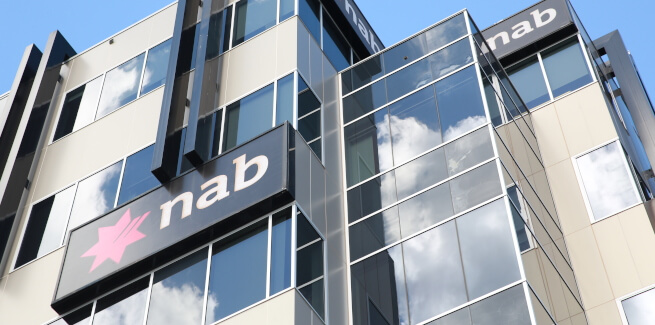Speaking to the House of Representatives standing committee on economics on Thursday, NAB chief executive Ross McEwan revealed the bank will be shortly responding to queries from the Australian Transaction, Reports and Analysis Centre (AUSTRAC).
In June, the financial crimes watchdog launched a formal investigation into the bank via its enforcement team, flagging concerns about NAB’s compliance with anti-money laundering laws.
In a letter to the bank, AUSTRAC wrote there was “potential serious and ongoing non-compliance” with customer identification procedures, ongoing customer due diligence and compliance with part of NAB’s anti-money laundering and counter-terrorism financing (AML/CTF) program.
“AUSTRAC have written to us and through their enforcement group, and asked us a number of questions, looking for information from the organisation. We’ll have that back to them in the next six to eight weeks and on an agreed timetable, with [AUSTRAC],” Mr McEwan said.
“So until we’ve given them that information and had that response, we’ll see what comes from that.”
The CEO commented the bank may have to consider further action, depending on the response.
NAB has spent around $800 million on its related compliance over the last four years, updating system processes and recruiting and training staff. Mr McEwan said there are around 1,200 staff dedicated to AML and know your customer (KYC) compliance.
AUSTRAC recently released an assessment into risk of criminal activity for banks operating across Australia, with the big four receiving a “high” ranking.
Money laundering was labelled the primary threat to major banks, with potential pathways including the purchase of high-value assets, such as houses.
Reflecting on the long-awaited Tranche 2 reforms to Australia’s anti-money laundering laws, NAB chief risk officer Shaun Dooley stated there could be an opportunity for the government to facilitate industry feedback.
The reforms would extend Australia’s AML legislation to regulate players outside of financial services, including lawyers, accountants and real estate professionals.
“I think there is a real opportunity for the system. So that’s the banks working with government to continue to review, simplify and update the legislative framework that applies to AML/CTF [anti-money laundering/counter terrorism financing], including looking at all the providers,” Mr Dooley said.
“Now clearly AUSTRAC, obviously as the regulator and the enforcement agency for that legislation – there’s a question for them about their views and capacity and complexity and their ability to do that. But I think the crux is we’re all aligned as a system, whether it’s banks, government, regulators, to ensure that we can limit the prevalence of criminals using the financial system.”
Mr McEwan suggested that smaller organisations may benefit from digital identification for individuals across Australians.
“I know that has run into difficulties in the past, but as you start to push it into small businesses… we’ve all gone and bought a house and had to deal with a real estate agent and a lawyer on both sides and we’ve had to do all the identification over and over again,” he said.
“I think if we could find some way of doing a digital ID that actually went across all of these and was able to be used, it would be a big step forward to helping those industries form part of the shield against criminal behaviour.”
NAB has had a remediation program that it has worked with AUSTRAC on during the last three years – with another year to go. Mr McEwan reported the bank is on track along the program.
[Related: Spring housing season to be most digital ever: CBA]
 ;
;
